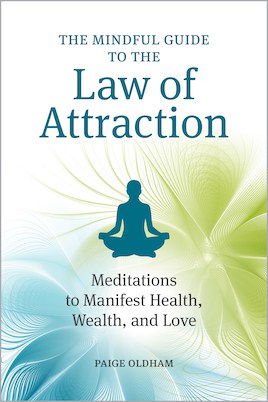The other day my husband and I got into an argument. We were both getting defensive. When he would point out some unproductive action I had taken that had led to the issue at hand, I would try to explain why I had taken the action (i.e. trying to be right). When I did this, he thought I was blaming him for the whole negative situation.
We were talking over each other, trying to be right and the whole thing was turning into an emotionally charged freight train to nowhere.
I couldn’t hear what he was really saying because I was too busy dreaming up my next comeback or looking to point out some fault in his argument.
Giving Up the Fight
At some point, I lost steam. Realizing that the whole “conversation” was making the problem worse, I stopped. I just sat there, initially because I was getting tired of repeating myself. I was also getting tired of hearing my husband repeat himself. Obviously, neither of us felt heard.
In that space of silence, my husband went past the cycle we were locked in and started to speak more insightfully and calmly.
I sat and listened. He spoke some more.
At first, I wanted to jump in and defend myself again but knew we had already wasted too much time doing that.
So I sat and listened.
Without me getting defensive and trying to be right, he had the space to share more of his feelings.
And by not trying to think of the next thing I was going to say, my mind had the space to process and understand what he was saying. And what he was saying had a lot of validity.
I was able to see more clearly how much I had been contributing to the issue that we were arguing about.
As he spoke and I listened, the tension dissipated and we were able to connect. My mind shifted from defending my story to seeing the issue in a whole new light. I moved from being closed off to opening up and thinking about how I could make the situation better.
I walked away from our discussion thinking of ways I could do things differently to create the better situation I was looking for.
By shutting up and listening, I did not walk away feeling righteous and mad at my husband – a situation that would have led to building anger and resentment for both of us.
We both felt better.
Listen to the Whispers
When we get into arguments, it’s our monkey mind and ego that drives our need to defend, conquer, control and win.
But when we tell our monkey mind where to go for a moment and create a bit of space, a little silence, we can begin to hear the whispers of our True Self guiding us in the right direction.
Give the Other Person a Gift
So the next time you’re in an argument and you feel the need to get in the last word, make your point known or just let them have it – don’t. The other person isn’t really listening anyway. And you’re not listening to them.
It won’t help anything. You won’t feel better in the long run.
Instead, shut up.
No matter what the other person says – stay silent.
When there’s a pregnant pause – stay silent. This is the other person’s opportunity to go beyond their own defensiveness and reveal a bit of themselves. Allow them to do this. Give them this gift.
While you’re silent, ask yourself why you’re arguing in the first place. Ask yourself if being defensive and argumentative is helping the core problem or moving you toward where you want to be. Probably not. It’s probably making the whole situation worse.
Let the other person speak as long as they need to and LISTEN. When it’s obvious that they have nothing left to say, THANK THEM for sharing whatever they shared with you. Thank them for their thoughts and opinions, even if you don’t agree with them.
Then rephrase their most important points back to them so they feel like you really heard them. Again, you don’t have to agree, you’re simply confirming that you received their message correctly.
From that point, unless the other person asks you for your thoughts, stay silent.
Take Responsibility
Go and think about how your actions contributed to the situation that created the argument. It may be hard to find but without taking personal responsibility for your part, there will never be a resolution.
When thinking about how you contributed, consider the saying: You get what you give. What have you been giving (or not giving)? If you don’t feel loved, how much love have you been giving? Don’t play the game of, “I’ll give the other person what they want after they give me what I want.” The other person won’t give first and you’ll continue to be angry and resentful.
In order to get what you want, give the other person what they want first with no expectations. Just do it because you want to.
And don’t make it so hard for the other person to give you what you want. Don’t insist that it has to look and feel a certain way. You’ll almost always be disappointed.
Expressing your disappointment to the person who is giving to you will reinforce why they shouldn’t try to give to you. Don’t shoot yourself in the foot. Enjoy and appreciate whatever it is that they give in whatever way they give it.
Put yourself in their shoes. How would it feel to be shot down every time you tried to help? Would you keep trying?
A New Beginning
The next time you’re in an argument, give yourself and the other person the gift of silence and truly listen.
Take responsibility for your contribution to the situation.
When you learn to bite your tongue and truly listen to the other person, your arguments will stop repeating themselves. You will have taken the first step toward changing what had seemed like a hopeless loop.
When you repeat the same argument over and over, you’re not really arguing about the topic at hand. You’re venting your frustration over not being heard, understood and appreciated.
You get what you give. Start changing what you give.
Create the life you want: Combine the law of attraction with mindfulness
The law of attraction suggests that our positive or negative thoughts bring about positive or negative experiences. My latest book, The Mindful Guide to Law of Attraction, pairs that belief with the powerful practices of mindfulness. Through intentional breathing, writing, and engaging, you’ll hone a method for manifesting health, wealth, and love―the elements of happiness.
Let the law of attraction work for you by adopting its basic steps of identifying and visualizing the things you desire. Then use 45 practical meditation techniques included in the book to achieve awareness. By concentrating your positive energy on obtaining your wants, you’ll give yourself permission to receive them.
To your happiness! ~Paige

You can find this book at Amazon, Barnes & Noble, Books-A-Million, and Indigo.







 The Mindful Living Guide
The Mindful Living Guide




Amazing things can happen in silence. It is in this space that the real you shines through. You gain clarity. The answers that have eluded you become clear as day. You make the amazing realization that you are not your thoughts and feelings, that you are pure consciousness and these are entities that are constantly passing by in various forms.
Couldn’t have said it better. Thanks so much for your contribution!
Dear Paige- When I read this post, I smiled. Learning to listen is a skill that everyone can learn. Once you get the hang of it, it’s hard to imagine having lived life without it. A beautiful post for this time of year. xxoo-Fran
Thank you Fran! Listening is definitely a learned skill, like practicing mindfulness and many of the other “revelations” I’ve discovered in the past bunch of years. Sometimes I wish that I had been taught these things as a child. But I know that everything happens perfectly and for a reason. If I had grown up with these things, I would probably have taken them for granted and never would have thought to share the gifts with others.
Big Hugs!!
Great advice! When my husband’s father would come to visit I became a server, bottle washer and cook while the “boys” would sit and talk, watch sports or remember family times. At first I was resentful until I shifted my thoughts. My parents died young and I missed them terribly – so I thought I would give my husband the “gift” of his father’s visits without any resentment or pouting. To allow them this special time was a gift. I never shared this “gift of service” to my husband but I know he appreciated it. His father passed last year and they had shared some wonderful conversations and time. I remember this when I want to heard – sometimes being quiet is the gift. Afterall most arguments are about silly things that it really doesn’t matter who is right. When it is something important to me – I stand my ground. Then I am heard.
That’s a wonderful gift to have given your husband Jane. I can certainly understand the initial feelings of resentment but, as you’ve said, it’s simply a matter of changing your focus and perspective to feel differently about the situation.
Yes, most of the things we argue about are silly. When the issues are more serious and our arguments are going nowhere, I’ve learned to use the silence to listen to my husband in order to devise a more productive way of being heard.
Thank you for sharing your gifts with us!
Thank for the insights and reminders in this post. We can all learn to be better communicators–especially with our spouses! In fact, my husband is my BEST teacher of all, and our relationship is filled with all sorts of learning opportunities….in fact I end up writing about us and him all the time…for anyone who is interested: http://smartliving365.com/the-best-marriages-get-better-better-thirty-five-years-still-counting/ Thanks again for your post I look forward to reading more about your journey…….Kathy
Thanks so much Kathy! I’m doing everything in my power to ensure that I’ll be writing about being together for 35 years too. That’s quite an accomplishment!
Like you, my husband has been my best teacher. Our challenges have been many but we’ve both grown immensely and know that we’re in this together. With that intention, we face our issues together. Sometimes it’s hard to hear the lessons but I know that I grow and learn when I allow them in.
Thanks for being here! Hugs!!
Thanks so much for the great welcome Paige! I found your website after reading about your inclusion in the Top 50 Personal Development Blogs ( http://www.stevenaitchison.co.uk/blog/the-top-50-personal-development-blogs-of-2011/) and started checking them out…..when I read yours I knew it was one I wanted to follow. Congratulations on your dedication and commitment to sharing the good! I’ll be checking back often…..Kathy
That’s wonderful Kathy! I’m so glad you found me! There are many other amazing blogs on the Top 50 list. I’m quite honored to have made the list. I’m shooting for #1 next year as a sign of the number of people I can reach and support.
It certainly takes humility, self discipline, and real consciousness to be able to quiet down and listen when in the midst of an emotional argument. This story is a real testimonial to how valuable this can be though.
I think a good first step could be to ‘notice’ after the argument whether we allowed time to listen. And then set an intention that next time we will notice a bit sooner, and at least try getting quiet. What is key of course is to be quiet to REALLY listen and hear what the other person is saying – not as a passive aggressive technique to make them ill at ease. So, notice, get quiet, reflect. As usual, great advice Paige!
Thanks Sarah!
Great point on the passive aggressive technique. I hadn’t thought of that. I think the other person can feel the difference between thoughtful silence and silence as a tactic so we should be mindful of our conscious and subconscious intentions.
While this isn’t easy, I’m hoping that this experience helps me to cut the “battle” short and get right to the listening next time. I used to think that arguments were something to be avoided at all costs but learned that they definitely have a place in healthy relationships. The key is to learn how to handle them productively and learn from them.
Great site. Plenty of helpful information here. I am sending it to some pals ans also sharing in delicious. And obviously, thanks for your sweat!
And thank YOU!
This is truly powerful advice, Paige. And I loved the personal story of the fight with your husband that led to you just listening. That kind of communication takes such humility. Pride can so easily get in the way. I know it does with me more often than not, it seems. But when we can set our egos aside and truly listen to what the other is saying, there is not only validation, but like you said, access to a new perspective that just may lead to more personal growth and development, better understanding and connection.
Thanks Ken! Yes, it has taken a couple decades to get here and wish my ego would have allowed this kind of insight a long time ago. It’s never too late!
It’s times like these when I think of the saying: Would you rather be right or happy?